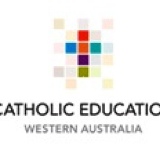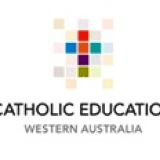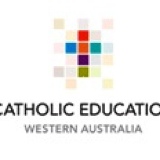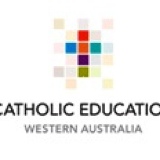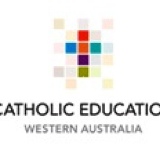Information
-
Document No.
-
Audit Title
-
Client / Site
-
Conducted on
-
Prepared by
-
Location
-
Personnel
Service information
-
Provider approval certificate and information about the provider - displayed by main entry area
-
Service approval certificate - displayed near main entry area
-
Copies of any waiver or service provision information - displayed next to the service approval certificate.
-
Information in regards to days and hours the service is operational is displayed.
-
Services rating information is displayed
-
Service has a certificate of currency for their public liability and indemnity insurance.
-
Service stores records of compliance and compliance directives issued by ECRU.
-
Service has a copy of the national law and regulations that is accessible to educators and families.
-
The service holds enrolment records at the service for all children who have attended the service in the last twelve months.
-
Service has lockable storage facility to store confidential information.
Indoor and outdoor areas
-
Risk management plan completed for all use of all areas outside of licensed spaces.
-
Daily checks are completed for all outdoor and indoor spaces available to children to ensure they meet health and safety requirements.
-
A landline phone is attached to the service.
-
A mobile phone or alternative is available for excursions.
-
Service has access to a space for confidential conversations between educators and families.
-
Service has access to the natural environment.
-
Service takes sustainability into account when purchasing new equipment and planning improvements to indoor and outdoor areas.
-
Equipment and facilities are clean, neat and in good repair and in sufficient quantities.
-
Fencing is designed in such a fashion that a pre school child is unable to get under, over or through it (if service cares for kindy children)
-
Outdoor area has access to sufficient shade.
Staff records
-
Service has a completed and updated copy of the staff record available from the ACECQA website.
-
Working with children checks held for all staff and volunteers at the service and available at all times. (checked regularly and updated as required)
-
Records of qualifications and other training sessions competed are stored for all staff.
-
The service holds records of educators food preparation certifications (as per local council guidelines) for all educators who are responsible for preparing meals and snacks.
-
An educator holding a supervisor approval certificate is present at the service during all hours of operation ( either acting in the role of nominated supervisor or responsible person - this information is recorded on both the roster and displayed in an area accessible to families.)
-
Ratios of educators required is maintained at all times <br>1:10 children if 1 or more kindy children are present <br>1:13 children if no kindy children are present<br>Risk assessment used to determine ratios for all excursions and challenging experiences offered as part of the program.
-
Risk assessment are used to determine ratios for all excursions as well as for all risky or challenging experiences offered as part of the program.
-
The service holds records of educators child protection training and or holds documentation that demonstrates that all educators have been provided with information on recognising the signs of abuse and the reporting structure.
Staff rosters
-
Service ensures a roster is completed and provided to all staff prior to rosters starting date.
-
Roster clearly documents the person in charge of the service for all hours of operation ( either the nominated supervisor or a responsible person)
-
The roster clearly designates on duty and off duty tasks for each educator - educators must be working directly with children to be considered on duty.
-
The roster clearly designates which educators are employed in a qualified and unqualified capacity.
-
The roster clearly designates which educators hold first aid, asthma management and anaphylaxis management training qualifications.
-
The roster clearly designates which educators hold food preparation certifications as per local council guidelines and is responsible for preparing meals and snacks.
Educators practice / interactions with children
-
Educations ensuring they are responding and adjusting to children's abilities, needs and requests.
-
Educators interactions support the development of positive relationships.
-
Educators interact with children as a priority.
-
Educators follow a code of conduct - CEO code of conduct
-
All educators actively build warm, positive relationships with all children attending the service.
-
Educators seek out networking opportunities - eg networking, pd sessions, joining up with peak bodies and support agencies (oshcwa & child Australia)<br>Services keeps records of attendance as evidence of professional development.
Nominated supervisor
-
Supervisor approval certificate displayed
-
Notice stating the name of the nominated supervisor alongside a photo of the nominated person is on display
-
Has signed the staff record and completed an application form to accept the responsibilities of the Nominated Supervisor within the service.
-
The roster clearly states when the Nominated Supervisor will be in attendance at the service.
-
A copy of the Nominated Supervisors Certified Supervisor Certificate is provided to the approved provider via the OSHC support officers.
-
The nominated supervisor ensures that all application and notification forms that are required to be submitted to ecru by the approved provider on the services behalf are provided to the support officer within time frames allocated - this included all ACECQA forms except for applications for supervisor approval certificates.
Responsible person
-
Supervisor approval certificate displayed - while the person is acting in the role of responsible person.
-
The name of the responsible person and the date and time that the responsible person will be acting on behalf of the Nominated Supervisor are clearly displayed alongside their certified supervisor approval certificate.
-
A copy of the Responsible Persons Certified Supervisor Certificate is provided to the approved provider via the OSHC support officers.
-
Educator has signed the staff record as a way of documenting their acceptance to perform the role of Responsible Person within the service.
-
Service has a roster that clearly states when the Responsible Person will be stepping up to cover the Nominated Supervisors responsibilities within service.
Educational leader
-
Name of the educational leader is clearly displayed.
-
The educational leader ensures that records of educational leadership are kept.
Management responsibilities
-
The service has a documented recruitment and orientation process that is used to induct all new staff members.
-
The service has a clear induction process and maintains documents of completed induction processes.
-
The service provides all staff members with job descriptions, handbooks and role documents that outline their duties and requirements prior to commencing duties with children.
-
The service has a documented process in place for staff development that includes info on pd sessions attended, and information in regards to areas for future improvement.
-
The service conducts regular performance evaluations and encourages staff to reflection on their practice.
-
The service completes professional development plans for each staff member.
Other information to be displayed
-
Grievance policy and contact information for the regulatory unit.
-
Children's Action plans & Health care plans (that have been signed off by a GP and have a photo attached)
-
Notification of reported cases of communicable diseases for families.
-
A notice that a child with anaphylaxis is enrolled if applicable
-
A notice that a child with an infectious disease has attended the service.
Emergency information
-
Emergency plans include evacuation and emergency information to be followed for all emergency situations including electrical issues, gas or chemical leaks, severe weather, natural disasters, bomb threat, lockdown situations and unwelcome visitors as well as situations that require the support of the police, fire or ambulance officers.
-
Services emergency signal takes into consideration that when school office staff are not available alternative alerts/alarm may need to be sourced.
-
Emergency evacuation plans and procedure on display by all exit doors.
-
Emergency evacuation plans and process checked by a recognised authority - FESA
-
Drills performed every 3 months - documented and displayed
-
All staff and children understand the emergency evacuation procedure.
-
Service has a list of emergency numbers and procedure to be followed for contacting emergency services by the services main phone.
-
Service has an evacuation procedure and evacuation pack to be taken with them in the event of an emergency that contains family contact details, first aid supplies and emergency medications and medical action plans for children attending the service.
Health and Safety
-
Service has a copy of the staying healthy in childcare and communicable disease guidelines publications.
-
Service maintains sign in out records of all visitors to the service.
-
Bathrooms require - hand washing posters, soap, hand drying facilities, supply of toilet paper. (sanitary disposal units & nappy change facilities as required)
-
Service has Bathroom cleaning checklists and procedures.
-
Service has Bathroom use and supervision plans & procedures.
-
Service has cleaning routines, rosters, checklists and procedures in place and documented.
-
Service documents cleaning tasks performed and has documented communication with school cleaning services.
-
Eco friendly practices are incorporated into services health and safety practices.<br>Eg recycling, energy conservation, use of chemicals.
-
The service is a tobacco,drug and alcohol free environment.
-
The service has a incident, injury, trauma or illness records.
-
The service have medication records that comply with reg 92
Health and hygiene procedures and practices are developed and upheld by the service including...
-
Sun protection - service has a sun safe policy and procedure access to sun cream and ensure all staff and children wear appropriate sun protective clothing as per policy.
-
Hand washing
-
Administration of medication.
-
Food handling
-
Food storage
-
Infection control
-
First aid
-
Pests & vermin
-
Storage of dangerous chemicals
-
Cleaning routines and procedures
-
Use of toilets and dealing with soiled clothing.
-
Water based experiences
Food provision
-
Food preparation facilities meet local council requirements.
-
Children have access to drinking water at all times.
-
A Weekly menu that contains an accurate description of food and beverages (other than water) on offer is on display to children and families.
-
Menu provided is nutritious, sufficient in quantity and appropriate for each child.
-
Menu takes into account each child's cultural, religious and health requirements.
Service philosophy
-
Philosophy is regularly reviewed - children, families, educators, management and service community are provided with opportunities to participate in the review process.
-
The philosophy is included in the staff and family handbook, is on displayed at the service and guides the services daily practice and programming procedure.
Educational program
-
Program is displayed for families, educators and children at the service.
-
Program documents are stored at the service for a minimum of 3 months.
-
The program is lead by the services educational leader and contact staff members.
-
Programming documentation demonstrates evidence of the programming cycle.
-
Risk management plans are completed prior to any experience that is considered to be of a medium to high risk - including but not limited to water based experiences, incursions, excursions, use of shared spaces, risky and challenging experiences, multi aged grouped experiences and settings.<br><br>Written consent from parents or guardians is sort prior to children participating in excursions or high risk experiences.
-
The services program aims to limit transitions and waiting times where possible and where this is not possible makes use of transitions as learning opportunities.
-
The program and reflection documentation show clear links between children's ideas & interests and EYLF/MTOP curriculum.
-
Program offers opportunities for rest and relaxation.
-
Program embeds physical activity within the daily routine and program.
-
Program embeds sustainability within the daily routine and program.
-
Planning documentation including risk assessment, booking info and excursion plans for all excursions should be kept as part of your vacation care program documentation.
Assessments
-
Service has a documented assessment and communication process that all educators understand and participate in.
-
The service documents children's participation in the program, as well as information regarding each child's needs, interests, experiences.<br>(Under 5's information as above as well as information in regards to the child's well-being, development and learning)
-
The service documents how the program meets the curriculum requirements and outcomes.
-
Assessments of participation and learning are provided to each child's family.
Communication with families
-
Families are encouraged to have input into the program and the reflection process.
-
Staff are able to communicate the main principles, practices and outcomes of the EYLF & MTOP curriculums and how educators apply them.
-
Families have access to health and hygiene information.
-
Educators inform families of any signs of illness and or details of injuries, incidents or accidents their child has sustained within 24 hours.
-
All educators actively build warm, positive relationships with family members.
-
Service has a parent advisor group who advocate on behalf of the service within the school community. (School board)
-
Families are provided with multiple opportunities to provide feedback and input the service.
-
Families are provided with information into the governance model of the CECWA Provider and service management (family handbook, orientation process)
-
All families are provided with access to the services current family handbook - <br>Handbook includes but is limited to the services philosophy, curriculum and program, grievance policy and ecru contact details, fee information, booking process,policy extracts, community information and other important and operational details of the service.
-
Educators are able to communicate information about the services program and how it relates to their child/ren and their participation in the program.
-
Families are notified of outbreaks of infectious diseases.
Quality improvement plan
-
QIP is available to all staff and families.
-
QIP is kept up to date and reflects the services improvement journey
Accident / illness / incident
-
Service has a documented process that all staff understand and use to record and report illness symptoms and records or accidents or incidents.
-
Accident / illness / incident and trauma report forms are completed by educators for all injuries, incidents or illnesses
-
Report forms are kept by the service until the child reaches 25 years of age.
-
Any accident or illness that requires a child to access medical treatment is reported to the approved provider immediately - a notification of serious incident form will be submitted by the approved provider within the 24 hour notification period.
-
Incidents involving the death of a child in care is reported to approved provider immediately - who will in turn notify ecru within the 24 hour notification period.
-
The service has a policy and or procedure in place to ensure that medications are only administered to children that families have signed consent for, that families have provided to the service for that child's use in the original packaging and that are in date.
-
Has a policy and or procedure in place that ensures that a record of any medications administered are signed off on by a minimum of two educators who have both checked the medication and dosage prior to administration and witnessed the medication being administered to the child at the service.
-
The service has a lockage storage area for storing medications brought into the service.
-
The service has a enough fully stocked first aid kits to ensure that educators can access one at all times.
-
Contents of first aid kits, medications stored at service and sun cream are checked regularly to ensure they are in date and safe for use.
Finance / Admin / CCMS
-
Service maintains accurate attendance records
-
Service ensure that all children's attendance records are signed by an authorised person (including absent days)
-
Service holds completed enrolment documentation for all children in attendance.
-
Enrolment form contains information in regards to their health needs, family & emergency contact details, permissions for regular excursions etc.
Policies
-
Policies are reviewed annually in consultation with all educators, service management and service community - updates are dated.
-
Families are provided with minimum of two weeks notice prior to policy changes and updates coming into effect.
-
Policies developed and used by the service reflect the current practice within the service.
Policies required by the regulations and act
-
Health and safety
-
Nutrition, food and beverages and dietary requirements.
-
Sun protection
-
Water safety
-
Administration of first aid
-
Incident, injury, trauma and illness
-
Dealing with infectious diseases
-
Managing medical conditions
-
Emergency and evacuation
-
Delivery and collection of children
-
Excursions
-
Providing a child safe environment
-
Staffing code of conduct, determining the responsible person at the service, participation of volunteers and prac students.
-
Interactions with children.
-
Enrolments and orientation
-
Governance and management
-
The acceptance and refusal of authorisations
-
Fees, parent statements and accounts
-
Grievance policy
-
Exclusion of tobacco, drugs and alcohol.
Procedures required by the education and care national act
-
The service has a procedure in place to ensure all children are adequately supervised at all times
-
The service has a procedure in place to ensure that children do not leave the service in an unauthorised manner.<br>
-
The service has a procedure in place to ensure children are not taken on excursions without parental consent.
-
The service has a procedure in place to ensure that inappropriate discipline methods are not used by any person at the service.
-
The service has a procedure in place to ensure that children are protected from hazards and harm.
-
The service has a procedure in place to ensure that programming documentation is being produced.
-
The service has a procedure in place to ensure that staffing arrangements comply with legislation
-
The service has a procedure in place to ensure that unauthorised persons are not present at the service.
